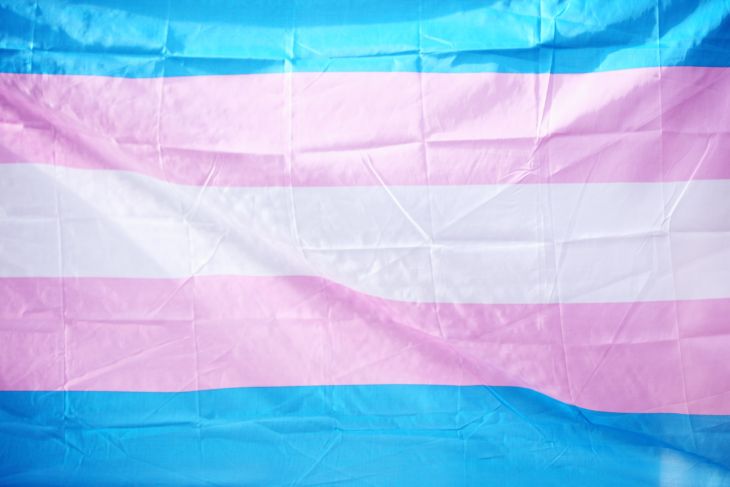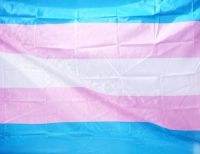UBC experts on International Transgender Day of Visibility
Media Advisories
March 31 marks International Transgender Day of Visibility, a day to celebrate transgender people and their contributions to society, as well as raise awareness of discrimination faced by transgender people worldwide.
UBC experts share their insights below.
What resources on campus would you like to shine a light on?
“The Equity & Inclusion Office offers resources to members of the UBC community who wish to enhance their knowledge about gender diversity, such as the Positive Space: Foundations course and the gender diversity knowledge hub. The hub also provides information to trans and non-binary students and employees about what they can expect while attending UBC and navigating its systems, and the Queer Staff and Faculty Collective provides a space for UBC faculty and staff who identify as members of 2SLGBTQIA+ communities to come together, make connections and build community.”
Reflection on the 2024 Transgender Day of Visibility
Dr. Arig al Shaibah (she/her)
Associate Vice-President, Equity & Inclusion, UBC Equity & Inclusion Office
Tel: (604) 822-5454
Interview language(s): English & Arabic
*unavailable March 28, 9 a.m. – 1 p.m.
How have statistics and data on transgender life been used and misused?
“From estimates of the size of trans populations to figures like ‘the life expectancy of a trans woman of colour is 35 years old,’ statistics about trans communities have circulated widely. However, more attention needs to be paid to the sources of such, from both an ethical and methodological standpoint, in order to combat the stigma against trans people propped up by bite-size pieces of misinformation.”
Dr. Avery Rose Everhart (she/her)
Assistant Professor, Department of Geography
Email: [email protected]
Interview language(s): English
*unavailable March 28, 12- 3 p.m.
How do inclusive SOGI educational programs such as drag workshops help students?
“Inclusive SOGI educational programs are changing lives and making schools safer and more welcoming for everyone. They play a crucial role in broadening students’ understanding of identity and promoting a culture of respect and inclusivity. SOGI educational programs, like drag workshops, offer a safe and affirming space for exploration and self-expression by bringing imagination, play and creativity into the classroom. By actively embracing and celebrating diverse identities, these programs inspire, empower and foster a sense of belonging for 2SLGBTQ+ students.”
Daniel Gallardo (they/them)
Doctoral student and SOGI UBC Program Facilitator, Sexual Orientation & Gender Identity Inclusive Education, Faculty of Education
Email: [email protected]
Interview language(s): English, Portuguese, Spanish
What’s the difference between trans* and queer and gay/lesbian (visibility), and why does it matter?
“Some transgender folks identify with the ‘LGBTQ2S+’ movement, but many do not. From India to Brazil to Tonga to Indigenous B.C., there are differing traditions of transgender experience. What often ties us together—across gay, trans, lesbian, and queer experiences and beyond—is that we have lived under the general violence of homophobia and transphobia in our families and societies. Thus various kinds of coalition-building among LGBTQ2S+ movements sometimes makes the most sense for meeting shared practical and strategic needs.”
Dr. David Gramling (they+)
Professor, Department of Central, Eastern, and Northern European Studies
Email: [email protected]
Interview language(s): English
How can schools and other learning environments be welcoming spaces for trans youth and educators?
“The things that trans people need to feel welcome at school are not so different from anyone else. Trans people need to be welcome and cared for at school, and to be able to participate in all activities without antagonism. After all, public schools are meant to serve the entirety of the public. Let’s build learning sites that are less fixated on regulating who children are allowed to be, and focus instead on what they need in order to learn alongside their peers.”
Dr. Harper Benjamin Keenan (he/him)
Robert Quartermain Professor of Gender and Sexuality and Assistant Professor, Department of Curriculum and Pedagogy
Tel: Contact Alex Walls at 604-822-4636 to arrange interviews
Email: Email Alex Walls at [email protected] to arrange interviews
Interview language(s): English
*Available for radio and print interviews March 28 before 12pm, and on March 29 and April 1
What trans stories aren’t being told?
“We need more stories about joyful trans lives, but trans joy is not recognized or celebrated in Canada or elsewhere. Research has shown that our media landscape, saturated with trans stories focused on controversy, is having a significant negative impact on the mental health of gender minority youth. In the face of such hostility, young people need to encounter genuine stories about joyful, fully realized trans lives which allow them to imagine and create their own joyful—and joy-filled—futures.”
Dr. Mary Ann Saunders (she/her)
Lecturer, School of Journalism, Writing, and Media
Email: [email protected]
Interview language: English
*unavailable March 28, 11 a.m. – 2 p.m., March 29 & 31, 9.30 a.m. – 12.30 p.m.
What purpose does visibility serve for trans people?
“Visibility for trans people is a double-edged sword. At times, it is a useful political strategy for building community, raising consciousness about specific issues and organizing forms of protest. However, visibility can also lead to vulnerability, particularly when trans people are forced into the spotlight through hostile discourse in media or discriminatory legislation. Such trans-antagonistic visibility can incite violence and denies trans people control over our own stories, fueling misrepresentation and false information that ultimately come to harm us.”
Dr. J. Logan Smilges (they/them)
Assistant Professor, Department of English Language & Literatures
Email: [email protected]
Interview language: English
*unavailable March 28, 3-7 p.m.














